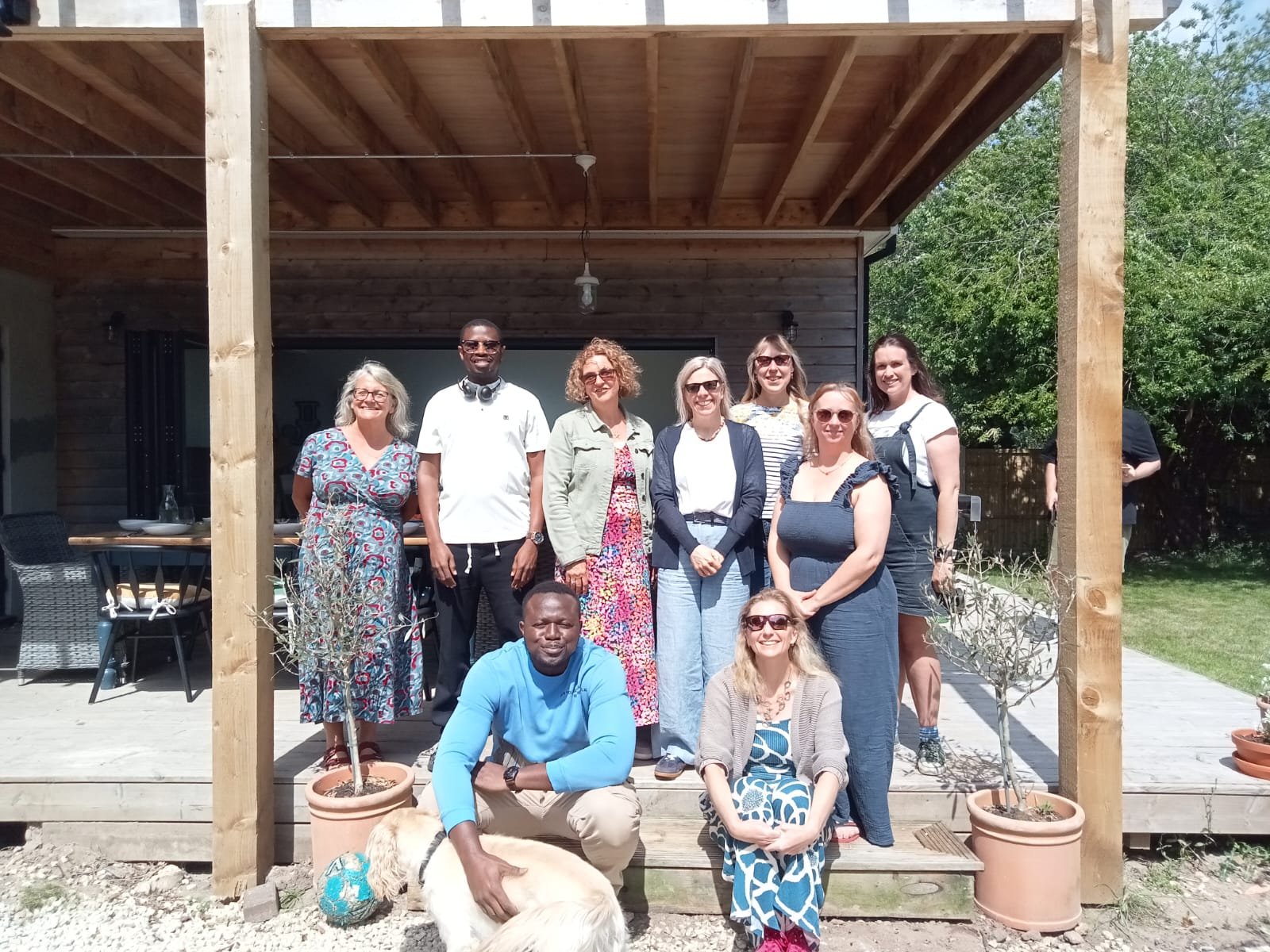The CSC fellowship programme for Dr Valentine Akwulpwa (Ghana) and Charge Nurse Yahya Njie (The Gambia) has continued with a busy two-week placement at University Hospitals Dorset (UHD, Bournemouth and Poole). Here they summarise the wide range of topics covered since their arrival in the UK, with reflections on potential benefits for stroke care in low- and middle-income countries (LMICs):
Clinical Skills, Knowledge, and Experience:
Hyperacute stroke care including assessment for time critical interventions: thrombolysis and thrombectomy. Emphasis on rapid imaging to treatment pathways
Neurocritical monitoring (e.g. managing raised intracranial pressure, dysautonomia) and post-procedural protocols to reduce haemorrhagic transformation risk
Advanced rehabilitation techniques including hands on experience of ‘Walkerbot’ gait-retraining for patients with severe motor deficits, integrating AI-driven adaptive support into standard stroke care practices
MDT-led early mobilization protocols <24 hours post-stroke, reducing pneumonia risk and length of stay
Complex case management, high-risk TIAs, stroke mimics e.g. seizures, functional disorders, and young stroke clinics addressing rare etiologies
Dysphagia screening with standardized bedside water tests and videofluoroscopy, minimizing aspiration pneumonia
Leadership:
Service consolidation, and culture following a strategic merger of acute / rehab units, enhancing staff flexibility and reducing mid-pathway transfers
Daily safety huddles, incident reporting, resource allocation, and real-time problem-solving
Staff empowerment and fostering psychological safety within the team; cross-discipline training initiatives e.g. nurses trained in NIHSS scoring; therapists empowered for thrombolysis screening
Succession planning: deputy leads shadowing consultants ensuring service continuity for the future
Resource optimization: 43-bed unit with dynamic zoning (hyperacute / rehab), maximizing capacity without new infrastructure
Partnership:
Regional networks including Hub-And-Spoke Model of regional care provision. Witnessed coordinated transfers from Winchester to Southampton for thrombectomy with shared telemedicine consultation
Community integration: witnessed collaboration between the UHD stroke service and Integrated Community Stroke Service (ICSS) for seamless home-based rehab, reducing readmissions by 18%
Global health synergies:
Contextual adaptation: UHD’s ‘low-tech, high-skill’ approach e.g. manual handling techniques which are directly applicable to LMIC resource constraints
Knowledge exchange: we shared WGSP's 8 core skills modules (e.g. swallowing, positioning) for potential integration into UHD training programmes for staff and families alike
Frugal innovation: UHD use of low-cost gait aids (e.g. bamboo parallel bars) aligns with WGSP's philosophy of sustainability
Data-driven care: the national UK electronic stroke registry (SSNAP: Sentinel Stroke National Audit Programme) tracking outcomes such as door-to-needle time, demonstrating potential for improvements in LMIC services and care provision through audit
Appreciation to all the WGSP UK team:
Hospitality: Thank you for the warm reception, accommodation support, and inclusive participation in MDT meetings, ward rounds, and community visits
Mentorship: Special gratitude to all the consultants, rehab therapists, and nurse leaders for their patience in skill demonstrations and case discussions
Collaborative spirit: The willingness to share protocols, governance frameworks, and failures openly has equipped me (Dr Val) to advance stroke care at Tamale Teaching Hospital
This attachment exemplifies the WGSP's mission of sustainable change through equitable partnership
